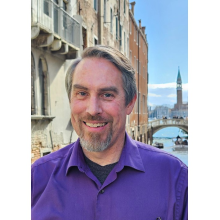-
Title
Group Leader, Actinides & Lanthanide Science -
Email
mccall10@llnl.gov -
Phone
(925) 422-1499 -
Organization
Not Available
Professional Experience
Dr. McCall is the Actinides and Lanthanides Science Group Leader, Crosscutting Research Focus Area Lead for the Critical Materials Innovation Hub (CMI) and Lead for the Alloy Development and Advanced Manufacturing Center within METALLIC.
Research Interests
Resource security and sustainability, materials criticality, magnetism & magnetic materials, metallurgy, 5f- and 4f-electron systems.
Certificate, National Security Leadership, Texas A&M University, 2012
Ph.D., Physics, Florida State University, 2000
M.S., Physics, Florida State University, 1995
B.S., Physics & Chemistry, Miami University (OH), 1992
- WCI Bronze Award for Development of Au-Ta Hohlraums (2021)
- R&D 100 Award: Versatile Cold Spray (2020)
- TechConnect Innovation Award: Al-Ce Alloys for Additive Manufacturing (2019)
- Certificate for Work on Bounding Plutonium Properties Group (2019)
- Director’s Award Science and Technology Early and Mid-Career (2018)
- Global Security Directorate Gold Award (2018).
- Federal Laboratory Consortium Tech Transfer Award for Al-Ce alloys (2018)
- R&D 100 Award: ACE: The Ageless Aluminum Revolution (2017)
- TMS Light Metals Award (2017) for best publication
- LLNL Outstanding Mentor Award (2017)
- Scowcroft Fellow (2011) Texas A&M University, National Security Leadership Class IV.
- Global Security Directorate Silver Award for “exemplary work on completing the SEARCHER project, Phase 1” (2010)
- Science, Technology, Engineering and Operations Award for “work in the area of fundamental plutonium solid-state and metal physics” (2008)
- Global Security Directorate Award for “Effort in creating a compact, low-power chemical sensor capable of detecting a wide variety of chemical vapors” (2008)
- Co-Chair, LLNL Materials & Advanced Manufacturing LDRD Committee (2021-present)
- Symposium Organizer, Magnetism and the Critical Materials Challenge, TMS 2022 (Anaheim CA)
- Guest Editor for Special Issue of JOM on “Recent Developments in the Processing of Magnetic Materials” (August 2020) and JOM “Advances in Processing, Manufacturing, and Applications of Magnetic Materials (December 2021).
- Symposium organizer on Critical Materials at Euromat, Stockholm SE, Sept 2019
- Member of the Magnetic Materials Committee of TMS
- Editor, Intermetallics (2016-2019)
- Chair, Physical & Life Sciences Directorate Awards Committee (2013-2019)
- Member: APS, TMS, IEEE, MRS


